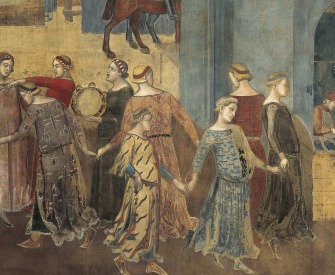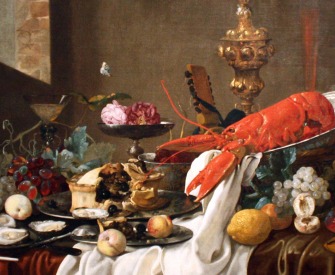For a truly sincere life one talent is needed—the ability to steer clear of the forces that would warp and conventionalize and harden the personality and its own free choices and bents.
All the kingdoms of this world lie waiting to claim the allegiance of the youth who enters on the career of life, and sentinels and guards stand ready to fetter and enslave him the moment he steps unwarily over the wall out of the free open road of his own individuality. And unless he dodges them and keeps straight on his path, dusty and barren though it may be, he will find himself chained a prisoner for life, and little by little his own soul will rot out of him and vanish. The wise men of the past have often preached the duty of this open road, they have summoned youth to self-reliance, but they have not paid sufficient heed to the enemies that would impede his progress. They have been too intent on encouraging him to be independent and lead his own life to point out to him the direction from which the subtle influences that might control him would come. As a result, young men have too often believed that they were hewing out a career for themselves when they were really simply offering themselves up to some institutional Moloch to be destroyed, or, at the best, passively allowing the career or profession they had adopted to mold and carve them. Instead of working out their own destiny, they were actually allowing an alien destiny to work them out. Youth enters the big world of acting and thinking, a huge bundle of susceptibilities, keenly alive and plastic, and so eager to achieve and perform that it will accept almost the first opportunity that comes to it. Now, each youth has his own unique personality and interweaving web of tendencies and inclinations, such as no other person has ever had before. It is essential that these trends and abilities be so stimulated by experience that they shall be developed to their highest capacity. And they can usually be depended upon, if freedom and opportunity are given, to grow of themselves upward toward the sun and air. If a youth does not develop, it is usually because his nature has been blocked and thwarted by the social pressures to which every one of us is subjected, and which only a few have the strength or the wisdom to resist. These pressures come often in the guise of good fortune, and the youth meets them halfway, goes with them gladly, and lets them crush him. He will do it all, too, with so easy a conscience, for is not this meeting the world and making it one’s own? It is meeting the world, but it is too often only to have the world make the youth its own.
The dangers that I speak of are the influences and inducements that come to youth from family, business, church, society, state, to compromise with himself and become in more or less degree conformed to their pattern and type. “Be like us!” they all cry. “It is easiest and safest thus! We guarantee you popularity and fortune at so small a price—only the price of your best self!” Thus they seduce him insidiously rather than openly attack him. They throw their silky chains over him and draw him in. Or they press gently but ceaselessly upon him, rubbing away his original roughness, polishing him down, molding him relentlessly—and yet with how kindly and solicitous a touch—to their shape and manner. As he feels their caressing pressure against him in the darkness, small wonder is it that he mistakes it for the warm touch of friends and guides. They are friends and guides who always end, however, by being masters and tyrants. They force him to perpetuate old errors, to keep alive dying customs, to breathe new life into vicious prejudices, to take his stand against the saving new. They kill his soul, and then use the carcass as a barricade against the advancing hosts of light. They train him to protect and conserve their own outworn institutions when he should be the first, by reason of his clear insight and freedom from crusted prejudice, to attack them.
The youth’s only salvation lies, then, in dodging these pressures. It is not his business to make his own way in life so much as it is to prevent someone else from making it for him. His business is to keep the way clear and the sky open above his head. Then he will grow and be nurtured according to his needs and his inner nature. He must fight constantly to keep from his head those coverings that institutions and persons in the guise of making him warm and safe throw over his body. If young people would spend half the time in warding away the unfavorable influences that they now spend in conscientiously planning what they are going to be, they would achieve success and maintain their individuality. It seems, curiously enough, that one can live one’s true life and guarantee one’s individuality best in this indirect way—not by projecting one’s self out upon the world aggressively, but by keeping the track clear along which one’s true life may run. A sane, well-rounded, original life is attained not so much by taking thought for it as by the dodging of pressures that would limit and warp its natural growth.
From Youth and Life. Born in 1886 in Bloomfield, New Jersey, Bourne became a regular contributor to The Atlantic Monthly while studying at Columbia; Youth and Life collects those columns. He became well known during World War I for his criticism of America’s interventionist foreign policy and of prowar progressives, including his former professor John Dewey. Bourne died in December 1918 during the influenza epidemic; in an obituary Floyd Dell praised his “mood of perpetual inquiry, and the courage to go down unfamiliar ways in search of truth.”
Back to Issue




